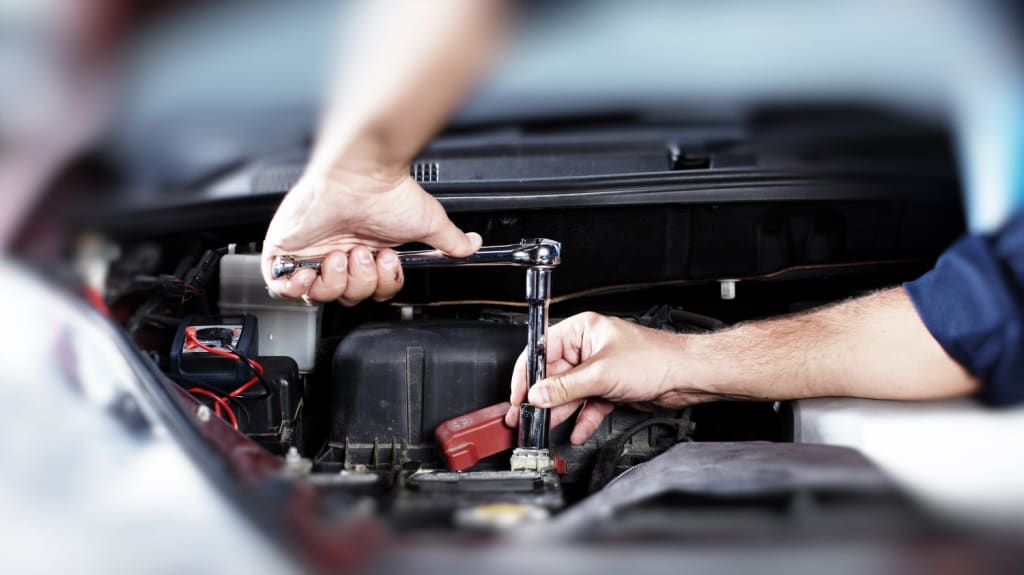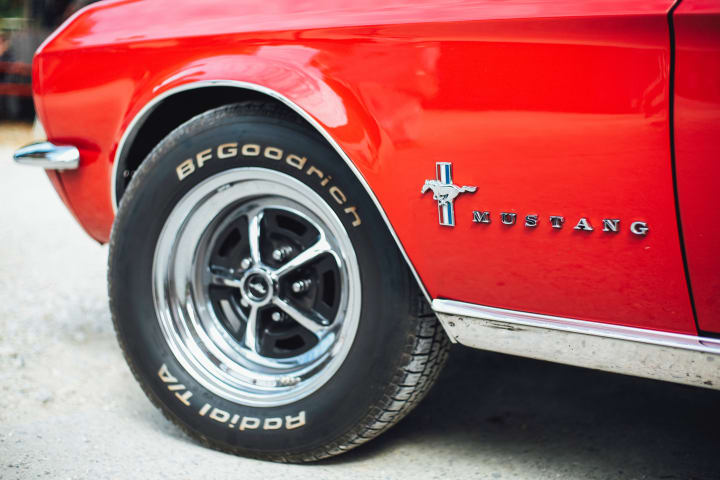Car Maintenance Tips Every New Driver Should Know
Utilizing critical car maintenance tips make you a proactive car owner.

The machinery in a car is nearly as complex as the human body and just as dangerous. Owning and maintaining your vehicle is a great responsibility that requires a great deal of diligence and care. While our modern vehicles are far safer and far more durable than those that came before, things still break and there are new issues to be addressed. When driving alone for the first time, one should start with some basic automotive knowledge rather than jumping right in. By understanding some of the ways in which an automobile functions, it is easier to know what forces will cause dysfunction and what signs indicate problems. While you don't need to understand the entire system behind how a car works in order to drive it, a working knowledge of the machine will allow you a far better ability to solve issues and make important snap decisions. No driver should ever go on a substantial road trip without knowing some basics of car maintenance tips.
Check oil regularly.
Though you have probably been told this by everyone in your family and any other adult in your life, it is for a good reason. Regular oil changes are of critical importance to the "health" of your vehicle, as the engine oil lubricates the components of the motor, keeping them from grinding and seizing. Unsurprisingly, dirty oil will not run as efficiently as clean oil, and will build up in engines both new and old if not properly cleaned and replaced. While it is a good start to change oil as scheduled and/or suggested based on the make and model of your car (some cars can go longer), you should make a habit if checking your dipstick regularly in case there is any sudden change in the levels or purity of the oil. In some older vehicles, small leaks can develop in the engine and slowly lowering oil levels can be an indication of such a problem. If leaks like this worsen, they can destroy the entire engine. It's not even that difficult to learn how to change your oil either, so as far as car maintenance is concerned, you should definitely know this process.
Keep tires in tip-top shape.

Photo by Markus Spiske on Unsplash
There are few more important components of the automobile as essential as the vehicle's tires. Being the point of contact between the vehicle and the pavement, your tires need to be on point in order to avoid traction loss, misalignment, and deflation. Perhaps one of the most important car maintenance tip you can impart to anyone is to take proper care of your tires.
Firstly, it is important to check tire pressure regularly to ensure that it has not changed drastically. While sudden massive tire pressure loss will typically result from some sort of puncture or abrasion, there are also what is known as "slow leaks." A slow leak occurs most frequently with aluminum and mag wheels rather than those with hub caps. Because alloys like aluminum are a bit more brittle than steel, they can swell and shrink over time, allowing air to escape from the tires slowly.
Additionally, one of the most important times to monitor tire pressure is when the temperature first drastically changes for a new season. When winter first arrives, it is quite common for your tires to lose some pressure. Sometimes this change will be picked up by your vehicles sensors, but it is not good practice to wait for such indicators. When the first major temperature drop occurs, it is best to check your pressure and adjust it as needed.
Be mindful of your air filters.
While most people remember to keep an eye on brakes, tires, and other more tangible aspects of vehicle maintenance, many often fail to grasp the intricacies of the automobile's inner workings. Just like you, your engine needs to breathe in order to operate. The air intake on a car allows the process of internal combustion to occur by feeding oxygen to the engine. It is important to make sure that the air that is coming into the engine is as clean as possible to expect the best performance from your car. The best way to regularly oversee this function is to replace your air filter when it becomes grimy. In this way, the air filter is like the mucus membrane of the sinuses that are the vehicle's air intake system. As such, you need to make sure they are relatively clean just as you blow your nose.
Replace brake pads and shoes!

Photo by Matthieu A on Unsplash
The brake system is the single most important safety feature of your vehicle! It is of the utmost importance that you be able to stop your car when necessary. While completely replacing brakes is not necessary very often, there are important measures you should take to assure that such is the case. When having your car looked at for inspection, you may have been told at some point that you need new break pads. Not sure what that means? The brake pads are the rubberized point of contact between your wheel rims and your brakes. rather than being metal to metal, this rubber allows your brakes to bring you to a stop without a great deal of sparks and twisting metal. If you don't replace these pads, they can wear out, causing the metal of the breaks to grind on the wheels. In most cases, if you have allowed the pads to degrade to this point, you have likely warped your brake rotors (and sometimes bend the rim), meaning that you will need all new brakes. By maintaining and monitoring your brake pads, you can avoid expensive brake jobs and scary driving situations.
Get regular alignments.
Just as the tire pressure, weight, and "health" of the engine can largely affect fuel economy, so too can a bad alignment. What is an alignment? If you have ever seen a car that appears to be listing to one side, hobbling like a dog with uneven legs, or just not riding very even, chances are it needs an alignment. An alignment assures that a car is riding evenly on the road with all the suspension parts at the right heights, and the tires become worn evenly (as achieved largely through tire rotation). If this procedure is left undone for too long, the components will settle and fall out of sync, causing the car to sit unevenly and the tires to wear unevenly (which can often exacerbate the problem). When the car is in such a state of unbalance, the fuel economy inevitably suffers with the vehicle having to work harder to achieve the same speed and performance.
Learn how to do as much of your own maintenance as possible.

Photo by Hosea Georgeson on Unsplash
As any car owner will tell you, mechanics, dealers, and the like charge a premium for most any maintenance they perform. If you are really handy with tools, one of the best car maintenance tips is to learn how to do as much work as you can. While there are certain types of maintenance that are difficult to perform and require much training and expertise, there are some simpler routine maintenance tasks that you can learn to do on your own to save money. For starters, if you can check your oil, you shouldn't have much trouble learning to change it.
As long as you know what motor oils are appropriate for your car (with the help of the internet) and you can open valves, changing oil and oil filters is no major mystery. Additionally, you can learn to change your own flat tire. While few cars come with a proper spare rim, it is important to know how to install that puny doughnut tire in an emergency situation. In the case of replacing a damaged rim, often the only thing that separates you from having a fully functional vehicle again is a few calls to parts manufacturers/the dump and a few lug nuts.
If you can do your own oil changes, you should have no trouble at all how to disconnect a car battery. In most vehicles, replacing the battery is as easy as disconnecting the terminals, lifting the battery out, and installing the new one, making sure to match the terminals properly. While you can learn to do a great deal of maintenance for yourself, if you don't know a certain amount to begin with, it is good to find a mechanic that you can really trust. A good technician can keep you on top of important components, like spark plugs, that can affect the efficiency of your engine and, consequently, the fuel economy. By doing your research, you will better be able to find a trustworthy and honest mechanic.
Monitor all belts and hoses.
With all of the moving metal parts and flowing liquids throughout, the automobile engine requires a great many belts and tubes to transfer energy and resources around. From your various fluids and wires to your timing belt, these are parts whose condition will effect the performance and even the safety of your vehicle.
The belts and hoses in the engine are made from various petroleum plastic and rubber products that can see a great deal of wear and tear with prolonged exposure to temperature changes. Though the cooling systems of the engine are meant to alleviate the inevitable wear on these components, time and the shift of weather will ultimately degrade them, requiring replacement. Broken hoses can lead to exposed wires, and the malfunction of a wide number of components with fluids ending up in bad places. As the belts serve to transfer motion between different moving parts in the engine, you would be hard pressed to find one that would not cripple your vehicle upon breaking.
Perhaps the most frightening belt malfunctions can be the failure of the power steering belt. Allowing for smoother and more responsive steering, the power steering belt is of critical importance for navigating around turns and other obstacles (especially at high speeds). While losing power steering does not make the vehicle impossible to steer, it is far more difficult, and the best course of action is to slow the car down as much as possible before muscling it to the curb.
Change your wiper blades.

Photo by Charlie Deets on Unsplash
While your vehicle's wiper blades may seem like one of the more frivolous car maintenance tips, you must recognize the critical importance of keeping these components in check. Though wiper blades seem like pretty durable implements with little need for maintenance, you will learn of the importance of replacing them when they break down. If your wiper blades show signs of the rubber detaching from the blades, it is time to replace them. As the rubber is what makes direct contact with the glass, it is of critical importance that you do not allow it to wear away. If this is left unfixed, you will likely find that your windshield will be scratched by the blades, compromising its integrity and just making it look crappy. If this still seems frivolous, consider that this is one of the points that is checked in annual inspections and as such, it is better to do cheaply on your own than by mechanics who will up-charge for parts and labor.
Flush your system with new fluids regularly.
As previously stated, the automobile engine runs on the flow of a variety of fluids throughout the system. Assuring that your engine runs cleanly and efficiently is the purpose of the best car maintenance apps, and it is best to monitor the fluid levels in your car and change them routinely. To lower the chances of overheating and debris buildup, it is best to check and replace your engine's coolant at last once every year. Additionally, you will want to monitor and replace brake fluids to best maintain the brakes. This is another measure you will want to take on at least an annual basis. Also, whether you have an automatic transmission or you're rocking a stick, you will want to find out how often your manufacturer recommends changing transmission fluid, as this will assure that your transmission works to its best efficiency and does not seize or break down.
Wash your bottom!

Photo by Davids Kokainis on Unsplash
With the multitude of shafts, pipes, braces, and lines that run along the bottom of the vehicle, it is essential to keep the undercarriage of your car clean and free of debris. Because much of the infrastructure of your vehicle is prone and exposed to the ground beneath you, it is of critical importance to keep it clean. While you may think of washing your car as a means of making it look better, it is important to recognize that washing is also critical to vehicle maintenance. Regular cleaning of the undercarriage will mitigate the effects of road salt and other corrosive agents in your environment that eat through the components of your vehicle. Additionally, the vulnerability of some of these parts opens up the danger of getting debris, such as tree branches and other junk, stuck in the wheel wells, or several different belts and drives.
About the Creator
Fred Eugene Park
Fred Park is a writer, singer and guitarist with a deep passion for music, sports and history. Fred graduated from Purchase College in 2016 with a BA in history.






Comments
There are no comments for this story
Be the first to respond and start the conversation.